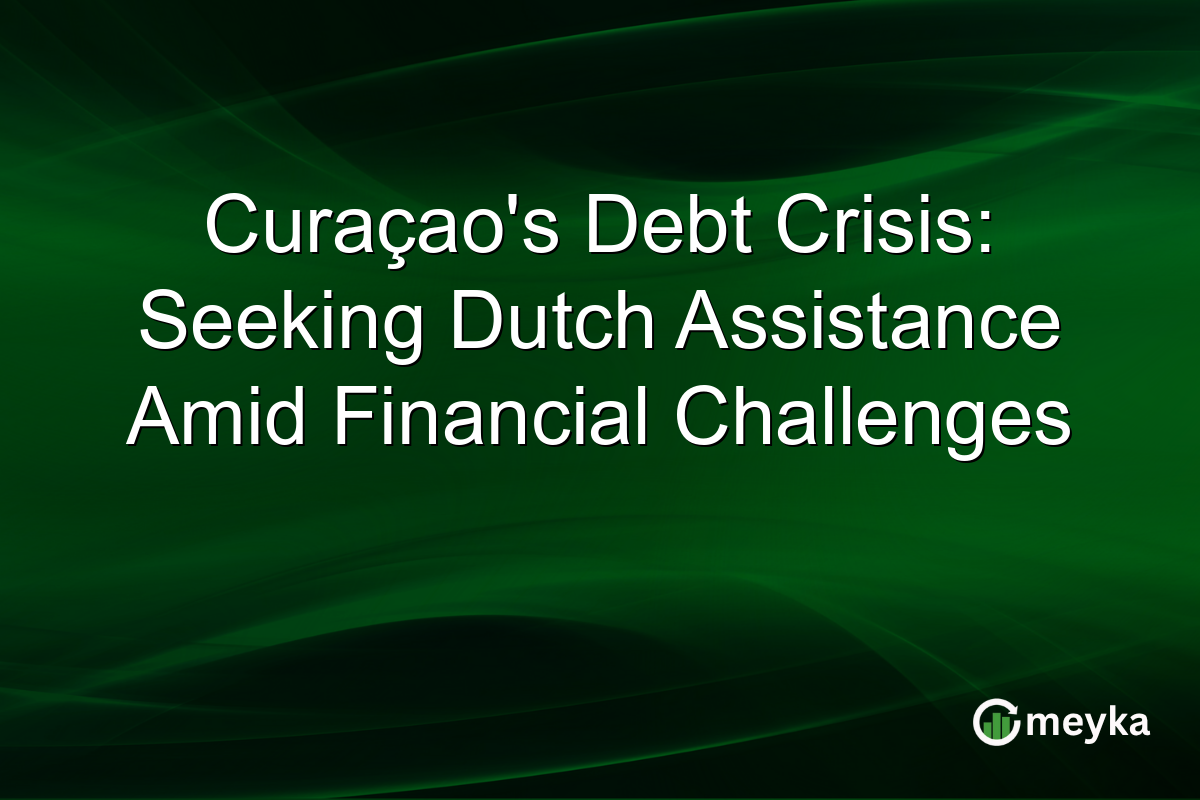Curaçao’s Debt Crisis: Seeking Dutch Assistance Amid Financial Challenges
Curaçao is grappling with a severe financial challenge. The island nation has informed the Dutch government about its inability to repay a maturing bond, valued at 140 million Antillean guilders (XCG). To address this, Curaçao is seeking partial refinancing by securing a new loan. This situation highlights the nation’s deepening financial vulnerability and underscores the urgency of comprehensive financial intervention. As Curaçao navigates these turbulent fiscal waters, understanding its economic hurdles and the implications of Dutch aid becomes critical.
Curaçao’s Economic Challenges
Curaçao’s financial struggles stem from a confluence of factors that include dwindling tourism revenues and an economy heavily reliant on external support. Like many Caribbean islands, tourism is a significant income source for Curaçao, but global travel disruptions have severely impacted this sector. Additionally, the nation faces structural economic issues that impede growth, including limited diversification and high public debt. With these challenges intensifying, Curaçao’s plea for Dutch financial aid becomes more pertinent.
The Role of Dutch Financial Aid
The Netherlands has historically been a financial lifeline for Curaçao, providing economic support and strategic guidance. In seeking assistance for the 140 million XCG bond, Curaçao is asking for partial refinancing through a new loan arrangement. This move illustrates the country’s dependence on Dutch aid to stabilize its fiscal situation. Discussions with Dutch authorities are expected to focus on loan terms, repayment timelines, and potential economic reforms. This financial aid is seen as vital for Curaçao to avoid default and maintain fiscal stability.
Implications for Curaçao’s Fiscal Stability
If successful, Dutch financial aid could provide Curaçao with the breathing room needed to implement necessary economic reforms. These reforms might include measures to diversify the economy, enhance public sector efficiency, and bolster financial management. The support from the Netherlands could not only alleviate immediate fiscal pressure but also set Curaçao on a path towards sustainable economic growth. For investors and stakeholders, this represents a critical juncture in assessing the island’s future economic viability.
Investor Reaction and Market Sentiment
Market analysts are closely watching Curaçao’s financial state and its negotiations with the Netherlands. Investor sentiment may hinge on the success of these discussions and the viability of Curaçao’s economic reform plans. Uncertainty could influence external investment prospects and credit ratings, potentially affecting the broader Caribbean region. On social media and financial forums, some express frustration over prolonged fiscal mismanagement, while others see Dutch aid as an opportunity for a financial reset. For detailed updates, check the latest Curacao Chronicle article.
Final Thoughts
Curaçao’s financial predicament paints a clear picture of its economic frailties and reliance on Dutch support. The island’s request to refinance its maturing debt is not just a stopgap measure but a call for more substantial intervention. Dutch financial aid, while crucial, will be most effective when coupled with strategic economic reforms. Curaçao’s path forward depends on how it manages immediate fiscal pressures and sets up frameworks for future stability. For stakeholders, this scenario is a reminder of the importance of robust financial governance and the role of international cooperation in resolving economic crises.
FAQs
Curaçao is facing a debt crisis due to a combination of declining tourism revenues, a lack of economic diversification, and structural fiscal issues. Travel disruptions globally have further exacerbated these challenges.
Curaçao frequently depends on Dutch financial aid to stabilize its finances. Historical ties have led to the Netherlands providing economic support and fiscal guidance to the island.
Dutch financial aid could help Curaçao avoid default, stabilize its economy, and implement much-needed reforms. This support is critical for maintaining fiscal stability and securing future growth.
Disclaimer:
This is for information only, not financial advice. Always do your research.






